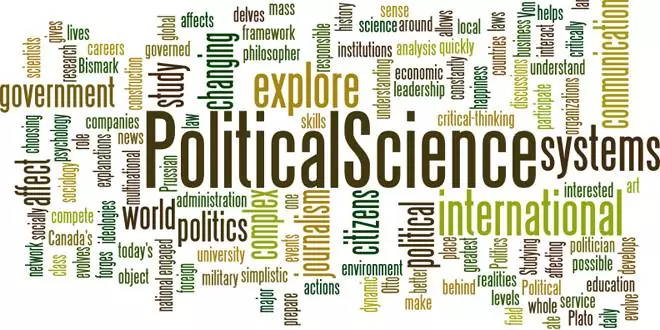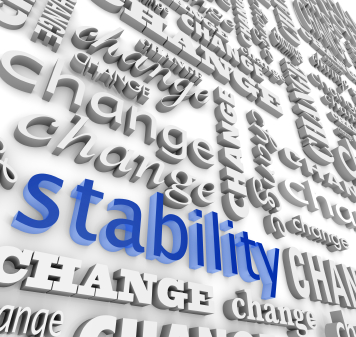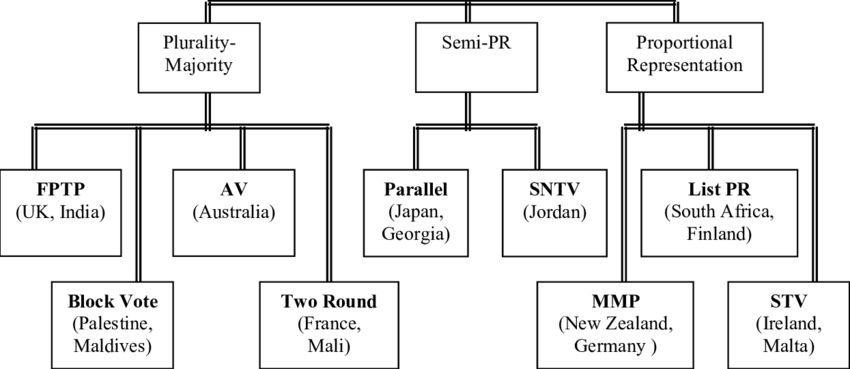Analyzing the Global Impact of Globalization
Explore the profound impact of globalization on politics and governance. Gain insights into the global shift in governance dynamics. Learn more about the globalization politics impact

The Globalization Paradox: Navigating the Impact on Politics and Governance
In today's interconnected world, the influence of globalization extends far beyond the realms of economics and trade. It has woven itself into the very fabric of governance and politics, reshaping the landscape of nations, and altering the course of international relations. This blog delves into the multifaceted impact of globalization on politics and governance, examining its implications for statecraft, political campaigns, and the ever-evolving world of political news.
The Evolution of Governance and Politics
Globalization has led to a fundamental shift in the dynamics of governance and politics. In an era where information travels at the speed of light, nation-states are no longer isolated entities. The boundaries that once defined them have become porous, allowing for the free flow of ideas, capital, and people. Consequently, governance structures are increasingly tasked with managing the complexities of an interconnected world.
One of the most profound consequences of globalization is the heightened interdependence of nations. States are no longer self-reliant, but rather interconnected in a global web of economic, political, and cultural ties. This interconnectedness necessitates a more cooperative approach to governance and politics, as issues such as climate change, terrorism, and pandemics require international cooperation and consensus.
US Political News in the Global Context
The impact of globalization on US politics cannot be overstated. Today, US political news is not just a domestic matter; it reverberates across the globe. As the world's largest economy and a military superpower, US policies and political decisions have far-reaching consequences.
For instance, trade agreements like NAFTA (North American Free Trade Agreement) and the US-China trade war have had global implications, affecting economies and political relations worldwide. Furthermore, the United States' stance on international issues, such as climate change and human rights, sets the tone for global discussions and initiatives.
Political News Today: A Global Perspective
The proliferation of the internet and social media has transformed the way political news is disseminated and consumed. In today's digital age, political news knows no borders, reaching audiences around the world instantaneously. This global reach has given rise to both opportunities and challenges in the realm of politics and governance.
While the rapid dissemination of political news can promote transparency and accountability, it also creates a fertile ground for misinformation and manipulation. The globalization of news requires governments to adapt their communication strategies and engage with a global audience, recognizing that their actions are under constant international scrutiny.
State and Politics in the Globalized World
Globalization has led to the emergence of new actors on the global stage. Non-state actors, such as multinational corporations, non-governmental organizations (NGOs), and transnational networks, wield significant influence in the realms of politics and governance. They can shape policies, challenge governments, and even disrupt international relations.
Additionally, the global flow of ideas and ideologies has altered the political landscape in many countries. Movements and ideologies that were once confined to specific regions can now gain traction globally. For example, the spread of populist movements and the rise of far-right and far-left ideologies are phenomena that transcend borders.
International Political News and Upcoming Events
The globalization of political news means that international events and developments are now of greater interest and relevance to individuals and governments alike. Upcoming political events in one country can have a domino effect on the global stage.
For instance, the outcome of elections in a major power can lead to shifts in international alliances and policies. The ongoing crisis in Ukraine and the Middle East conflict are vivid examples of how regional politics can have far-reaching global consequences.
Political Campaign Strategies in a Globalized Era
Globalization has also reshaped political campaign strategies. Campaigns are no longer confined to local or national audiences; they must now consider the global impact of their messaging and actions. Social media platforms and online fundraising have made it possible for political campaigns to garner support and attention from individuals and organizations worldwide.
Furthermore, the interconnectedness of the world means that domestic issues can quickly become international ones. Campaign promises, policies, and actions are scrutinized not only by domestic constituents but also by foreign governments and interest groups. The globalized nature of politics demands a more nuanced and sophisticated approach to campaign strategy.
The Challenges of Globalization in Politics and Governance
While globalization has undoubtedly brought about numerous benefits, it has also introduced a set of challenges that governments and political actors must grapple with in this interconnected world. Let's explore some of these challenges in more detail:
Loss of Sovereignty: As nations become more interconnected, they often find themselves ceding some degree of sovereignty to international bodies and agreements. This loss of control over certain policies and decisions can be a source of tension for governments, particularly those that wish to maintain strict national sovereignty.
Income Inequality: Globalization has contributed to income inequality within and between countries. The benefits of economic globalization have not been evenly distributed, leading to discontent among those who feel left behind. This inequality can fuel political unrest and challenges to governance.
Cultural Clash: As cultures and ideas mix more freely, there can be clashes and tensions, leading to debates over issues such as immigration, cultural preservation, and identity. Governments must navigate these cultural complexities while maintaining social cohesion.
Security Challenges: The interconnected world has given rise to new security threats, including cyberattacks, transnational terrorism, and the spread of infectious diseases. Governments must cooperate on a global scale to address these threats effectively.
Environmental Concerns: Environmental challenges such as climate change, deforestation, and pollution are inherently global issues. Addressing them requires international cooperation and coordination, often necessitating sacrifices in national interests for the greater global good.
Information Warfare: The digital age has made information warfare a potent tool in international politics. Disinformation campaigns, cyberattacks on critical infrastructure, and social media manipulation can have significant political and governance implications.
Economic Vulnerability: The globalized economy is susceptible to economic shocks that can originate in distant parts of the world. Governments must implement robust economic policies and safety nets to shield their populations from these vulnerabilities.
Migration and Refugees: Globalization has facilitated the movement of people on an unprecedented scale. The displacement of populations due to conflict, economic hardship, or environmental factors requires governments to adapt their immigration and refugee policies.
Navigating the Future of Politics and Governance
In the face of these challenges, governments and political actors must adapt to the realities of a globalized world. Here are some strategies and considerations for navigating the future of politics and governance:
International Collaboration: Governments should prioritize international collaboration and diplomacy. Building strong alliances and partnerships is essential for addressing global challenges effectively.
Adaptive Governance: Governance structures should be flexible and adaptive to changing circumstances. This includes the ability to quickly respond to crises, adjust policies based on international developments, and engage with global actors.
Transparency and Accountability: In a world where information flows freely, transparency and accountability are more critical than ever. Governments must be open about their actions, decisions, and intentions to build trust with both domestic and international audiences.
Investing in Education: To prepare citizens for the challenges of globalization, governments should invest in education that promotes global awareness, critical thinking, and digital literacy.
Environmental Stewardship: Governments should prioritize environmental sustainability and work collaboratively on global initiatives to combat climate change and protect natural resources.
Cybersecurity: Enhancing cybersecurity capabilities is crucial to safeguarding national interests and critical infrastructure from cyber threats originating abroad.
Addressing Inequality: Policies aimed at reducing income inequality and providing economic opportunities for all citizens can help mitigate some of the social and political challenges posed by globalization.
Multilateral Institutions: Support for and engagement with international organizations like the United Nations, World Trade Organization, and World Health Organization can facilitate cooperation on global issues.
Globalization has reshaped the landscape of politics and governance in profound ways. While it presents numerous challenges, it also offers opportunities for nations to work together for the collective benefit of humanity. To thrive in this globalized era, governments must embrace cooperation, adaptability, and transparency while addressing the complex issues that transcend borders. The future of politics and governance depends on our ability to navigate this intricate web of global interconnectivity with wisdom and foresight.
What's Your Reaction?
















